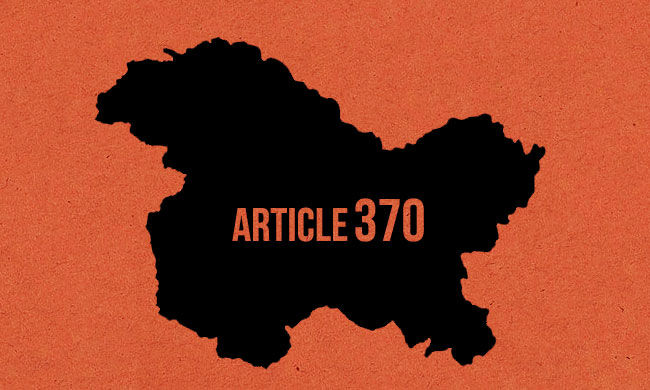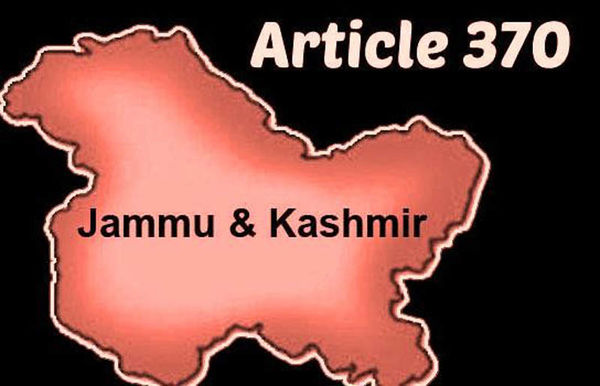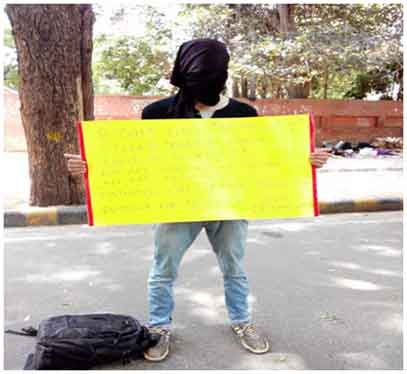
The Kashmir dispute has been a bone of contention between two nuclear armed neighbouring nations and has involved a third neighbouring armed nation in this Frey. This dispute has not only halted any long term healthy relationship between India and Pakistan but also led them into three major wars since their birth. This issue has not only given birth to bitterness between two countries but has also had its effects on the foreign affairs of these two nations. The prominence of Kashmir issues in the international circles was the beginning of Kashmir’s edgy involvement in Foreign affairs for both the countries. At times India came under this edge and sometimes Pakistan but for the most of it it was Kashmir which felt the brunt of it. The domain of this effect has not been confined to the relationship between Pakistan and India, but their relations with other nations.
This edgy effect of Kashmir in the External affairs came to focus with the recent strains in the relations between Pakistan and its long time friend Saudi Arabia. The primary reason behind it was the Kashmir issue which Saudi was trying to avoid as was expressed by Pakistan Foreign Minister. This is almost unprecedented that the relationship between two countries turned bitter. This was after Shah Mahmood Qureshi, the Foreign Minister on the National News Channel announced that he would request the PM to move on without Saudi, do they continue to ignore Pakistan on the Kashmir issue. Giving rise to speculations that Pakistan might cut ties with OIC and create a new block outside Arab influence. Arab world especially Saudi and UAE didn’t back Pakistan Post the August 5 decision of India to abrogate Article 370.
Pakistan has been quite active on the Kashmir front following the PTI government coming into power in Pakistan. The magnitude of this activity increased following the abrogation of article 370 by Indian. It was this activeness that Kashmir gained much International focus post the aforementioned decision. For the first time since the 1960s Kashmir was discussed in UNSC. But Pakistan found very few nations backing it and the Arab response was not even neutral but rather tilted towards India. Pakistan has been trying a lot on this front since last year but couldn’t convince Arabs and that might have forced Qureshi to go to that level. Even though the matter is claimed to have been almost settled as claimed by their senior minister Sheikh Rashid as COAS paid a visit to SA to cool down things. This has been the extent of proactiveness shown by Pakistan over Kashmir in the recent past.
As for India, Kashmir has not bothered them much in recent times, except for statements and media focus. Largely it has been able to extend its hands freely in Kashmir matters. The extent of it came with its decision to abrogate 370. Even after this unexpected decision, India was not bothered much internationally much except again for some statements and media attention. However it had some role to play in the recent Indo-China standoff as was hinted by some statements from Chinese Foreign Office and later by a statement by the Chinese embassy spokesperson in Pakistan.
The Kashmir tide around the ocean of foreign affairs has not been the same throughout for two nations.
The interference of Kashmir in the foreign affairs started with India taking this issue to the UN and thus internationalizing it. This continues to haunt India till now. In the start, things were quite different for both the nations. At the time of independence the world was in the grip of a cold war. While India chose the policy of Non Alignment, Pakistan tilted towards Washington. This gave Pakistan an edge in the international circles with regards to Kashmir. This is evident from the UN’s response towards Kashmir, calling for a plebiscite. A plebiscite in Kashmir Pakistan considered in its favour owing to the Muslim majority of the region. Not just the call for a plebiscite, the UN established the UN Commission for India and Pakistan which has its offices on both sides of Kashmir. The security council rejected the resolution passed by the J&K constituent assembly regarding the acceptance of accession to India claiming that only people could make such decisions. One can argue that Pakistan couldn’t use these in its favors during the time influential nations were backing it. At the same time India was defensive on the matter. They claimed they were committed to holding a plebiscite and that Kashmir wasn’t settled. This was reiterated by Nehru time and again. In his letters to Liaqat Ali Khan, Atlee, in his speeches in parliament.
Things didn’t remain the same for both in this regard. Unstable political conditions in Pakistan, changing attitude of West specially US and of USSR to some extent towards India and Pakistan led to change in affairs outside and subsequently in terms of Kashmir. Since the attitude of influential nations specially US kept changing towards both nations, so did the role of Kashmir outside these countries. With the changing scenarios in the international affairs and India’s and Pakistan’s involvement in them kept changing with time. So did the involvement of big players in it. During this course of time there have been ups and downs with regard to the foreign affairs of both nations and subsequently Kashmir’s influence outside.
The Indo-Pak war of 1971 was a turning point in this regard. This war decisively changed the political setup in the subcontinent. Subsequently it had its effect on Kashmir, both internally and externally. Internally Sheikh Abdullah who till then was advocating for plebiscite in Kashmir, sensing the change in power structure reached an agreement with India and gave up his idea of plebiscite. Externally there was a substantial change in the nature of Kashmir Issue. Post 1971, the Shimla agreement between India and Pakistan turned Kashmir from an International issue into a bilateral issue between two countries. While Kashmir was still heard internationally but not in the same manner as was in the Pre 71 era. India till now refuses to accept Kashmir internationally considering it a bilateral one.
Since then three major incidents shaped the foreign affairs of two nations vis a viz Kashmir.
The first was the Afghan Jihad. It was a time when the US and Pakistan worked very closely against the USSR in Afghanistan. The countries were close in their relations. As such US did back Pakistan in its Kashmir cause. Around this time Pakistan helped Kashmir with the training and ammunition for the militants operating there. And this period saw a peak of separatist movement in Kashmir. The role of Pakistan and the backing of the US at the same time cannot be ignored.
The second happening was Pakistan getting much closer to China, and with the growing influence of China, US getting closer to India to contain it. This was not an overnight step. Today the only big power supporting Pakistan over Kashmir is China, While other nations don’t bother about it much.
The third and most decisive was 911, which changed the political scenario all around the world. Pakistan was forced to follow the US in its war on terror. Following which Pakistan went on a defensive on Kashmir. To an extent that Musharaff was ready to compromise on the issue in the form of his 4 point formula.
Since then there was no prominent Kashmir cry internationally, until the August 5 decision. It has been a long way from how it started.
Hamaad Habibullah is an Economics student at Jamia MIllia Islamia from Kashmir.
SIGN UP FOR COUNTERCURRENTS DAILY NEWSLETTER















































